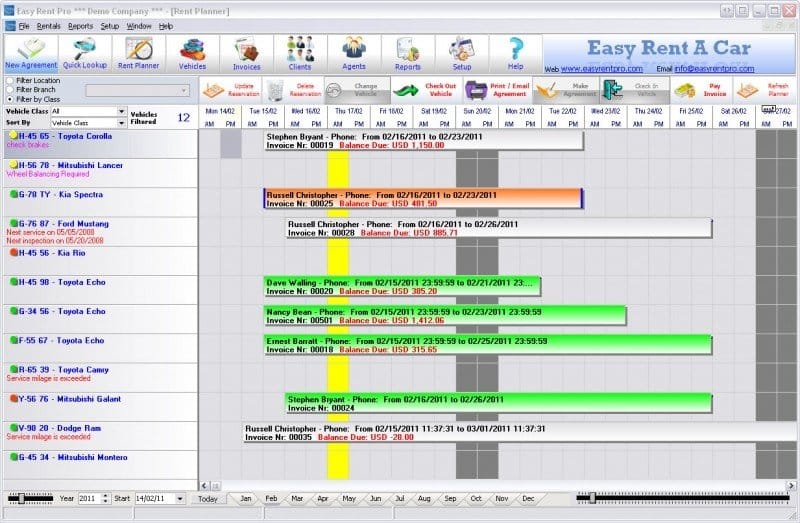The Role of a Car Rental Management System
A Car Rental Management System is an integrated software solution designed to automate and manage various aspects of car rental operations. From reservation management to fleet tracking, billing, and customer service, a CRMS encompasses a wide range of functionalities that are essential for the smooth operation of a car rental business. Here are some key areas where a CRMS makes a significant impact:
Reservation and Booking Management
A robust CRMS allows customers to make reservations easily through multiple channels, including websites, mobile apps, and over-the-counter services. It provides real-time availability, enabling customers to choose their preferred vehicle and rental period effortlessly. This seamless booking process enhances customer satisfaction and encourages repeat business.
Fleet Management
Effective fleet management is crucial for the success of a car rental business. A CRMS offers detailed insights into fleet status, including vehicle availability, maintenance schedules, and location tracking. By optimizing fleet utilization and ensuring timely maintenance, rental companies can reduce downtime and extend the lifespan of their vehicles.
Billing and Invoicing
Automated billing and invoicing features within a CRMS simplify financial transactions, ensuring accuracy and efficiency. The system can handle various billing scenarios, including hourly, daily, weekly, and monthly rentals, and can accommodate additional charges such as insurance, fuel, and late fees. This automation reduces administrative workload and minimizes the risk of errors.
Customer Relationship Management (CRM)
A modern CRMS includes CRM capabilities that help rental companies build and maintain strong relationships with their customers. By capturing and analyzing customer data, the system can provide personalized service, recommend suitable vehicles, and offer loyalty programs. Enhanced customer engagement leads to increased satisfaction and loyalty.
Reporting and Analytics
Data-driven decision-making is vital in the competitive car rental industry. A CRMS provides comprehensive reporting and analytics tools that offer insights into various aspects of the business, such as fleet performance, rental trends, and financial metrics. These insights enable managers to make informed decisions, identify areas for improvement, and develop effective strategies for growth.
Benefits of Implementing a Car Rental Management System
The adoption of a Car Rental Management system brings numerous benefits that can transform a car rental business:
Operational Efficiency
Automation of routine tasks such as booking, billing, and fleet management reduces manual workload and frees up staff to focus on more strategic activities. This efficiency translates into faster service delivery and improved operational performance.
Enhanced Customer Experience
A CRMS ensures a seamless and hassle-free rental experience for customers. From easy online reservations to quick check-ins and check-outs, the system enhances every touchpoint of the customer journey, leading to higher satisfaction and loyalty.
Cost Savings
By optimizing fleet utilization and reducing administrative overhead, a CRMS can significantly lower operating costs. Additionally, accurate billing and invoicing reduce revenue leakage and improve financial stability.
Scalability
As a Online Car Rental Management System, a CRMS can scale with it, accommodating increased volumes of transactions and expanding fleet sizes. This scalability ensures that the system remains effective and efficient, regardless of business size.
Competitive Advantage
In a competitive market, adopting a modern CRMS can provide a significant edge. The ability to offer superior service, maintain an efficient fleet, and make data-driven decisions positions a rental company as a leader in the industry.





Comments